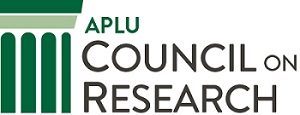
CoR NEWSJune 20, 2016
To: APLU Council on ResearchFrom: APLU CoR Staff
- Final NIH Policy on Single IRBs for Multi-Site Research
- In Case You Missed It: Revised Definitions for Export Controls Regulations (June 3)
- In Case You Missed It: NIH Issues Notice on Research Involving Chimpanzees (May 26)
- Final NIH Policy on Single IRBs for Multi-Site Research
NIH has pre-published the Final NIH Policy on the Use of a Single Institutional Review Board for Multi-Site Research. The PDF can be viewed and downloaded here. The policy will appear in the Federal Register tomorrow (here), with an effective date of May 25, 2017.
- In Case You Missed It: Revised Definitions for Export Controls Regulations (June 3)
On June 3, the U.S. Department of State released an interim final rule (here), and the U.S. Department of Commerce released a final rule (here), updating definitions relevant to export controls, and working to harmonize regulatory definitions for the two departments.
- In Case You Missed It: NIH Issues Notice on Research Involving Chimpanzees (May 26)
The NIH May 26 released a notice limiting the permissible types of research involving chimpanzees. The NIH will not fund any new or competing grants involving chimpanzees, with the exception of “noninvasive research.” Furthermore, the NIH Office of Science Policy announced it will hold a workshop Sept. 7, 2016, to discuss the oversight of research with non-human primates and discuss non-human primates as research models.




Stay Connected
X (formerly Twitter)
Facebook
YouTube
LinkedIn
RSS